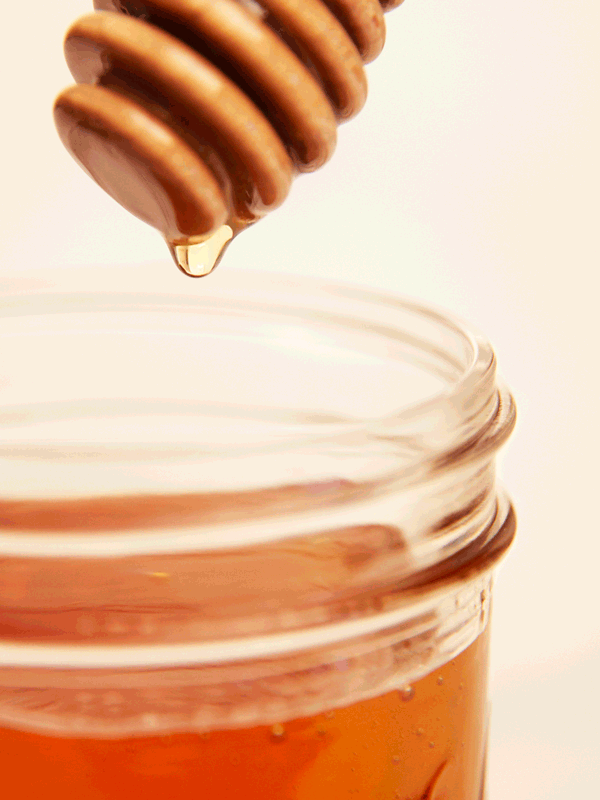
Benefits of honey for health and fitness
Honey is a nutritious, healthy, and natural food, to which antioxidant, anti-inflammatory, and antimicrobial properties have been attributed, mainly due to its content of phenolic compounds.
Honey is linked to healing properties and antibacterial action.
It has been used in medicine for over 5,000 years.
Honey can replace sugar in meals, providing a healthier option.
Energy Booster
Honey is a natural unprocessed sugar that can be digested even if your digestive system is sensitive. The fructose and glucose in honey directly enters the bloodstream and gives a quick boost of energy. There is a rise in blood sugar that acts as a short-term source of energy while you do a rigorous workout.
Boosts immunity system:
Honey has nutraceuticals, which is a good source to bind free radicals and toxins in the body and removing them. For the same reason and its anti-microbial qualities, it is an excellent booster of the immune system.




Healing wounds and burns
When applied to the skin, honey can be part of an effective treatment plan for burns, wounds and many other skin conditions. It is particularly effective for diabetic foot ulcers. honey’s healing powers come from its antibacterial and anti-inflammatory effects as well as its ability to nourish surrounding tissue
Reducing the diarrhea
Honey also promotes increased potassium and water intake, which is particularly helpful when experiencing diarrhea. Research suggests that honey has also shown the ability to block the actions of pathogens that commonly cause diarrhea.




Relieving cold and cough
Honey may prove beneficial in relieving symptoms of a cold or cough.The World Health Organization (WHO) recommends honey as a natural cough remedy. Honey reduced night-time coughing and improved sleep quality in children with upper respiratory infection to a greater degree than the cough medicine dextromethorphan
Help Lower Blood Pressure
Blood pressure is an important risk factor for heart disease, and honey may help lower it. This is because it contains antioxidant compounds that have been linked to lower blood pressure.Studies in both rats and humans have shown modest reductions in blood pressure from consuming honey




Preventing acid reflux
Recent research has shown that honey can reduce the upward flow of stomach acid and undigested food by lining the esophagus and stomach.This has helped to reduce the risk of gastroesophageal reflux disease (GERD). GERD can cause inflammation, acid reflux, and heartburn
Fighting infections
There is a evidence that the use of honey as a remedy for infection.Scientists reported that honey’s ability to kill bacteria lies in a protein called defensin-1.Manuka honey may even be effective for the treatment of MRSA infections. first-line treatment for infections with bacteria that are resistant to many currently available antibiotics.




Helps Improve Cholesterol
High LDL cholesterol levels is a strong risk factor for heart disease.This type of cholesterol plays a major role in atherosclerosis, the fatty buildup in your arteries that can lead to heart attacks and strokes.Interestingly, several studies show that honey may improve your cholesterol levels.




Lower Triglycerides
regular honey consumption with lower triglyceride levels, especially when it is used to replace sugar. Elevated blood triglycerides are another risk factor for heart disease. They are also associated with insulin resistance, a major driver of type 2 diabetes. Triglyceride levels tend to increase on a diet high in sugar and refined carbs
Beneficial Effects on Heart Health
honey is a rich source of phenols and other antioxidant compounds. Many of these have been linked to a reduced risk of heart disease. They may help the arteries in your heart dilate, increasing blood flow to your heart. They may also help prevent blood clot formation. Furthermore, study showed that honey protected the heart from oxidative stress




Replacing added sugar
Honey’s sweet flavor makes it an ideal substitute for sugar in the diet. Added sugar in the diet provides excess calories with no nutritional benefit. This can lead to an increased body weight, which comes with an increased risk of high blood pressure and diabetes.
Healthy & Glowing skin
due to its moisturizing, antibacterial, and anti-inflammatory properties. It can help hydrate, soothe, and potentially improve skin conditions like acne and eczema. Honey also acts as a gentle exfoliant, removing dead skin cells and revealing a brighter complexion




